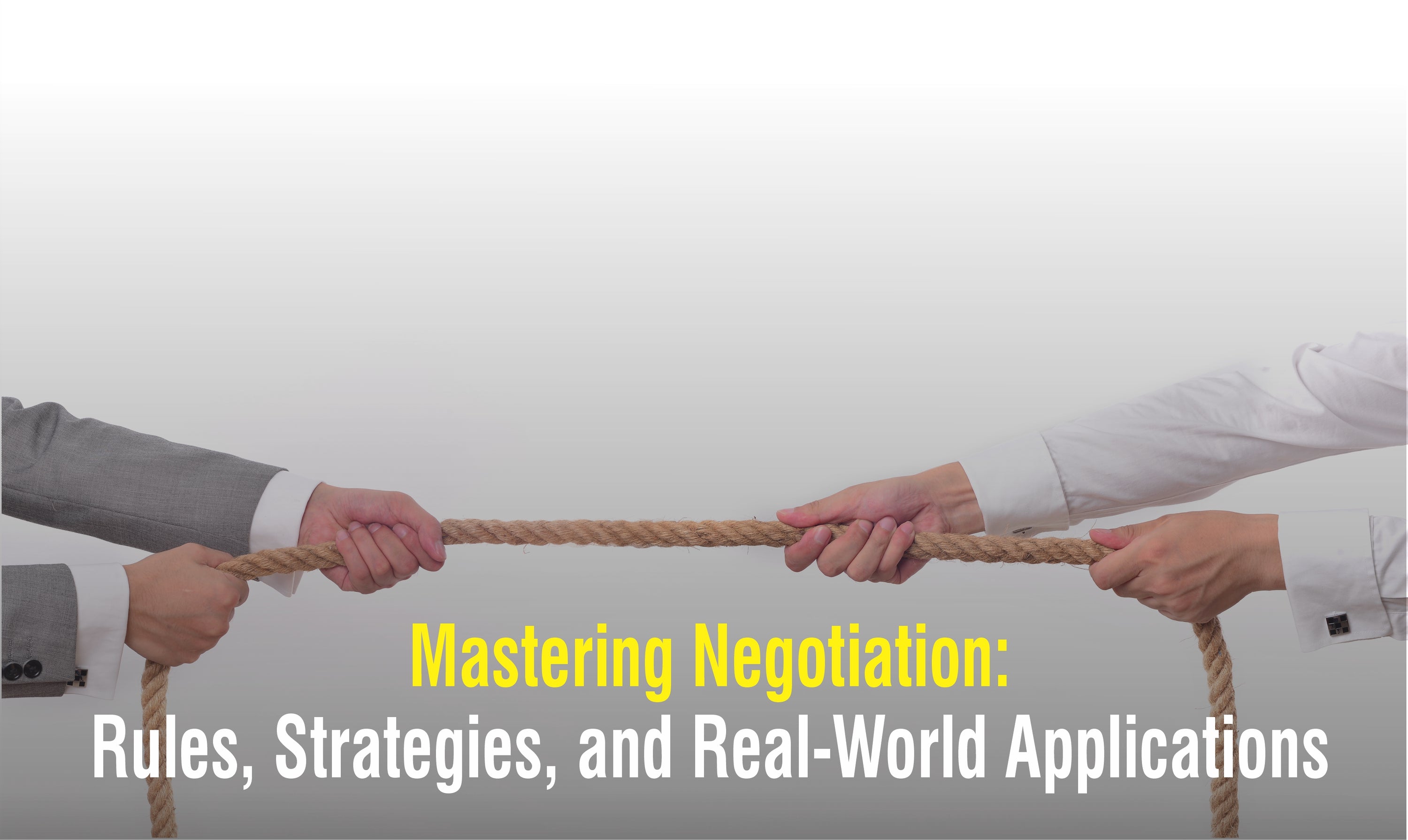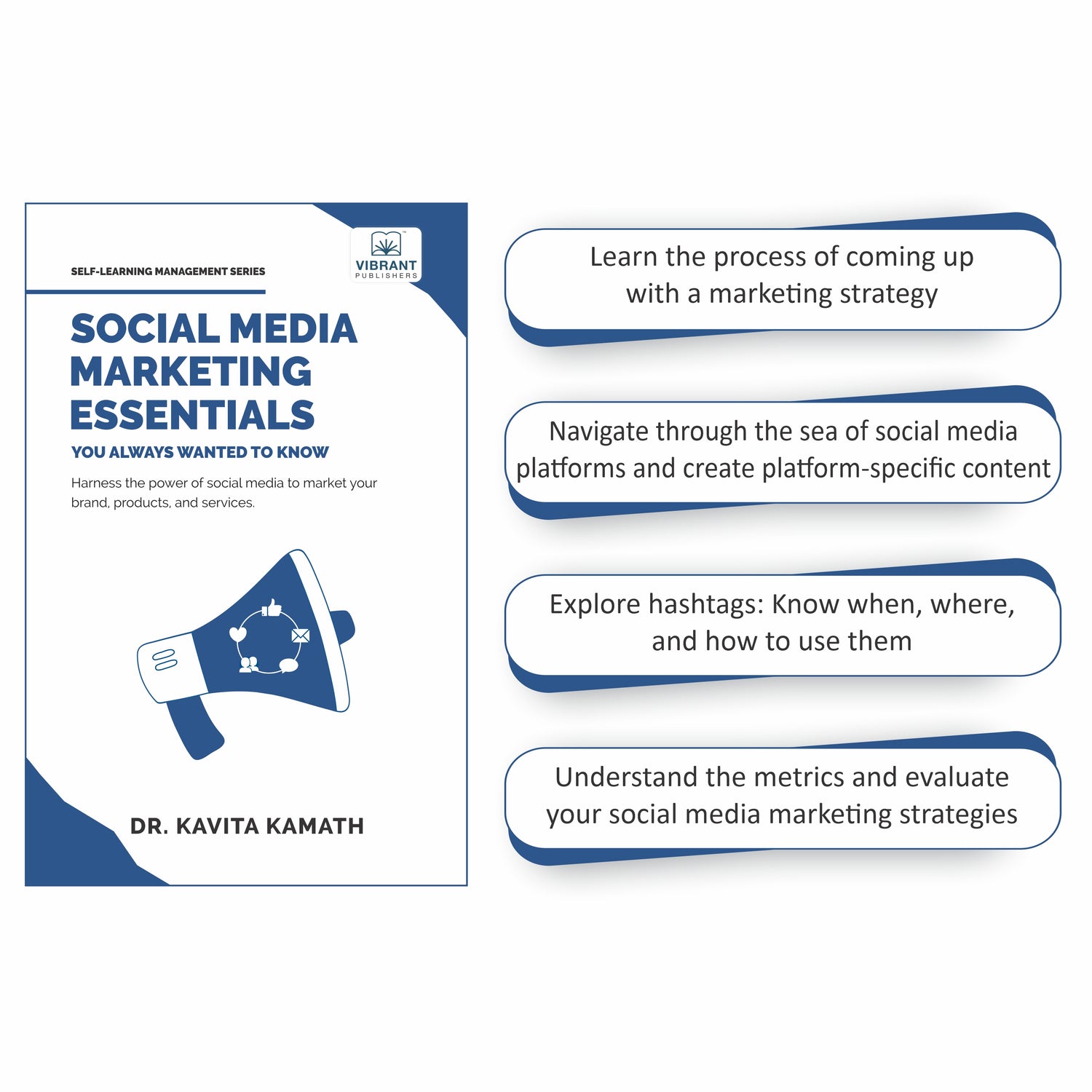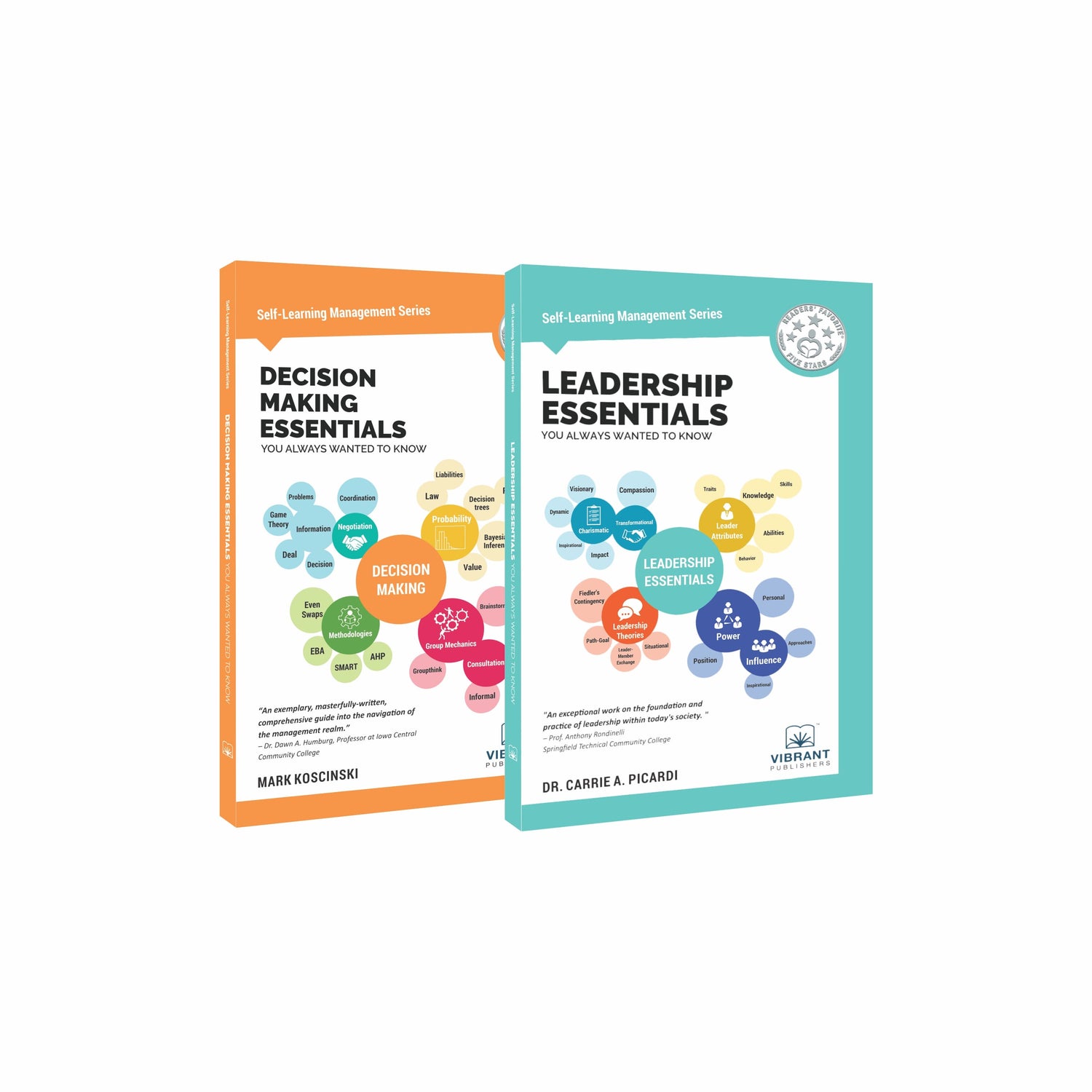Home
-
Blogs on General Management
-
Mastering Negotiation: Rules, Strategies, and Real-World Applications

Mastering Negotiation: Rules, Strategies, and Real-World Applications
Negotiation is both an art and a science, integral to personal and professional success. Whether negotiating a business deal, resolving workplace disputes, or finalizing a labor contract, following fundamental principles and using strategic frameworks can significantly impact outcomes. 90% of business leaders believe communication skills, like negotiation, are crucial for future business success.
Here, we expand on essential negotiation strategies, using real-world examples, statistics, and case studies to illustrate these concepts.
A. Basic Rules of Negotiation
- All parties need to profit from a deal, or at least be left at the status quo
- The party who needs the deal least is able to do the best at the negotiating table.
- Be prepared before the negotiation begins.
- Do not become emotionally tied to the negotiation.
- Try not to negotiate alone.
- Careful preparation is required for summit meetings - Summit meetings require careful preparation. While involving the head of an organization can finalize a deal efficiently, it carries risks if unresolved issues remain. Leaders should only participate after all major points are agreed upon, and negotiations should cease once final agreements are being signed..
- Negotiations have a life of their own - Avoid Prolonged Negotiations. Protracted discussions risk stalling or losing deals altogether.
- Negotiate Globally - Deal with individual issues sequentially but defer final agreement until a holistic solution is achieved.
- Insight: The endowment effect - Parties resist losing previously gained advantages. For instance, in union negotiations, benefits secured in earlier contracts often become sticking points in subsequent talks.
B. Asymmetric Information in Negotiations
Asymmetric information occurs when one party has more knowledge than the other, creating an imbalance.
Example: In real estate, sellers typically know more about property issues than buyers. To balance this, buyers often hire inspectors or agents.
Addressing asymmetric information involves due diligence and transparency. Negotiators should seek verifiable data, use neutral third-party assessments, or implement contractual safeguards.
C. Game Theory in Negotiations
Game theory applies mathematical frameworks to predict outcomes in strategic interactions.
Pascal’s Wager
Although a philosophical argument, Pascal's wager illustrates decision-making under uncertainty. Applied to negotiations, it suggests acting in a way that minimizes risk while maximizing potential rewards.
Pascal’s argument for why it was good to believe in God’s existence:

Pascal was attempting to show belief in God was completely logical. There is nothing but upside!
Game theory offers useful strategies for negotiation and decision-making:
- Maximax: Risk-takers choose the option with the highest potential return, regardless of risk.
- Minimax: Minimizes maximum loss; common in lawsuit settlements.
- Maximin: Maximizes minimum return, used by stockbrokers locking in gains.
- Mixed Strategy: Randomizes choices to stay unpredictable, like in “Rock, Paper, Scissors.”
Each strategy suits different situations, balancing risk and predictability to achieve optimal outcomes.
Case Study: The Cuban Missile Crisis (1962) exemplifies game theory. Both the U.S. and USSR made moves to avoid mutually assured destruction (minimax) while negotiating for strategic advantage.
D. Walking Away From the Deal
Walking away is a powerful tool in negotiations, signaling firm boundaries and strength. However, threats like "take it or leave it" must be used carefully and only when backed by credible intentions. An effective walk-away strategy prevents acceptance of unfavorable terms, such as outrageous proposals that could anchor the discussion.
Disney and Sony over Spider-Man Rights (2019): Disney initially walked away from negotiations with Sony over Spider-Man’s involvement in the Marvel Cinematic Universe. The bold move pressured both sides to revisit and eventually strike a more mutually beneficial agreement.
Conclusion
Negotiation success relies on preparation, strategic thinking, and adaptability. By understanding concepts like asymmetric information, leveraging game theory, and recognizing when to walk away, leaders can navigate complex negotiations effectively.
For those aspiring to refine their skills, Decision Making Essentials dives deeper into negotiation techniques and decision-making frameworks. Read the book to master advanced tools and strategies for professional and personal growth!
Share











